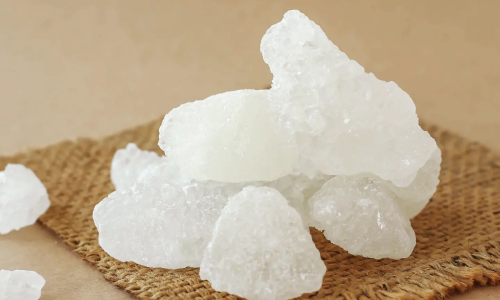Madhura or sweet is one of the six primary tastes identified by Ayurveda. And when I hear the word sweet, the first thing that would come to my mind is rock sugar. There are many sources that say consuming sugar is unhealthy. But, to be honest, you should know that sugar is no enemy; in fact, you can enjoy it, as long as you know when to treat yourself. The best way is to reduce your intake of sugar and making it an occasional indulgence. Out of all sugars, Ayurveda considers Mishri to be the best; moreover, it is often praised for its numerous health benefits. Why rock sugar? There is a common notion that jaggery is the best form of sweetener and is healthy. But Ayurveda has a different opinion. In fact, Ayurveda considers rock sugar as the best and healthiest form of sweetener, while there is no such mention of jaggery in any of the Ayurvedic texts. Rock sugar versus jaggery Here is a comparison of the properties of rock sugar and jaggery: Rock sugar Jaggery Digestive and cooling Heavy and not very cooling Loaded with medicinal properties Lesser medicinal properties Helps improve cough and cold and is an ingredient in many cough and cold medicines, such as Sitopaladi churna, Talisapatradi churna, etc. Worsens cold and cough and even creates Krimi (intestinal worms) and increases body fat Helps reduce Vata and Pitta; however, increases Kapha and is hence not ideal for diabetics Reduces Vata, but only helps decrease Pitta slightly Safe for daily consumption Ayurvedic texts have no such mentions of jaggery Good for your eyes and helps improve strength Cleanses the bladder and urine; furthermore, it purifies the blood and, in addition, increases strength. Has anti-ageing and aphrodisiac properties Aphrodisiac Traditionally prepared and is available in the raw form. They do not chemically process, refine, or bleach it. If jaggery is not made well, it causes extreme Kapha disorders, intestinal worms, etc. Also, Ayurveda recommends using old jaggery, specifically that which is one year old or more. But considering how they prepare jaggery these days, they do not find old jaggery fit to use. You cannot use new jaggery either as it is inferior, and may cause indigestion. You can clearly see who the winner is here. Now you know what to add to your tea! Rock sugar or jaggery? You can join our Health Programs for mind and body detox. If you are struggling with any health issues, you can either book a consultation with us or send us a message via WhatsApp to +91 79074 89839. We have the best Ayurvedic doctors in Trivandrum who are always glad to help you. If you have any queries, contact us. You can also visit us at our hospital.
Rock sugar is the best Ayurvedic sweetener. Why?









